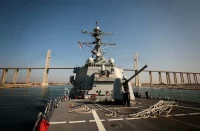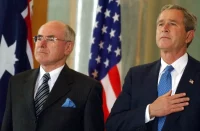After the end of the war with Iran in the summer of 1989, the Iraqi leadership was faced with two major problems: economic and domestic, on the solution of which the survival of the Baathist regime depended. In fact, the eight-year war with Iran had bankrupted the country. The foreign debt exceeded $100 billion, and the war claimed the lives of over half a million Iraqis. The country, which had reached an extreme degree of militarization (one million people out of a population of 18 million were under arms), suffered a dramatic decline in living standards, experienced an acute shortage of specialists and manpower to restore the shattered economy. The regime perceived these difficulties not as the result of an adventurist policy, but as a consequence of insufficient oil revenues to buy the loyalty of the army and keep the entire state apparatus functioning. Neither Kuwait nor Saudi Arabia was interested in writing off Iraq’s debts or in a concerted increase in oil prices. There was growing dissatisfaction with the outcome of the war with Iran, which had not brought any dividends to the Iraqi population. Hence, Hussein had a logical need for a new adventure, now against a small neighboring state, which would have all chances of success.
It is also important to take into account the fact that S. Hussein, receiving military equipment and weapons in huge quantities from various sources in conditions of non-interference in the Iran-Iraq war on the part of the great powers, became a prisoner of the illusion of complete freedom of action, support from the USA and the Arab world, his own power and independence (his nuclear weapons program, a wide arsenal of chemical weapons, the national program for the development of rocket and space technology). Hence his claim to a leading role in the Arab world and the status of a regional power for Iraq, a fighter for the rights of Arabs trampled by corrupt Middle Eastern rulers who have a very lenient policy toward Israel.
In deciding to send troops into Kuwait, the Iraqi leader hoped that the United States, its NATO allies, and Israel would be hesitant to launch a major military action against Baghdad, based on the following considerations.
 Washington, by deploying its forces in the Persian Gulf during the Iran-Iraq conflict, has secured its national interests in this region, while on the other hand it has threatened the economic interests of its European partners. For this reason, we should expect tension between the U.S. and the EU over the situation in the Persian Gulf to intensify over time.
Washington, by deploying its forces in the Persian Gulf during the Iran-Iraq conflict, has secured its national interests in this region, while on the other hand it has threatened the economic interests of its European partners. For this reason, we should expect tension between the U.S. and the EU over the situation in the Persian Gulf to intensify over time.
For the White House, the cost of maintaining U.S. troops is around hundreds of millions of dollars. In the event of a military conflict, this amount will increase many times over, which will be a heavy burden on the already overburdened U.S. military budget.
Even after a massive air strike on Iraq, Washington and its allies will not be able to gain control of the country and their actions will cause an increase in anti-American sentiment throughout the Arab world. For the Americans, ground operations will be accompanied by significant casualties, which will eventually force the U.S. to stop fighting and withdraw its troops as it did in Lebanon. As for Israel, Tel Aviv will not dare to join Washington for fear of becoming a victim of the use of Iraqi chemical weapons missiles against it.
Washington seeks to prevent the anti-American regime in Iran from rising to the level of a dominant state in the region, and only a strong Iraq can balance Iranian ambitions.
The embargo on trade with Iraq will put the countries of Europe and Turkey in a difficult situation, and they must demand that Washington compensate them for their losses. This situation creates favorable conditions for Baghdad to break the “united front” of states that condemned Iraq for taking Kuwait, resulting in “gaps” that would make the embargo ineffective.
Saddam Hussein was also counting on a split in the Arab world (Iraq was supported in one way or another by Jordan, Yemen, Libya, Sudan, Algeria, Tunisia, Mauritania and the PLO), on the total inability of the Arab states to respond resolutely and unanimously, as they always did. As for the Arab countries allied to the Americans, such as Egypt, the Iraqi leader believes that Cairo will not be able to participate in a confrontation for a long time because of its economic problems. And Baghdad can create additional difficulties for it, in particular, by expelling more than 2 million Egyptian specialists and workers from the country.
In general, Hussein assumed that the seizure of Kuwait should not be regarded as an occupation, but as a reunification of the Arab nation, similar to the reunification of Germany, Vietnam and Yemen. According to his calculations, such an action would allow Iraq to influence the oil policy of the US (Iraq and Kuwait possess 25 percent of OPEC’s world reserves and their share of production is 20 percent) and to influence the world economy through oil prices.
At the same time, two months after the invasion of Kuwait, Hussein began to realize that the Americans had lured him into a trap from which he would not be able to get out without significant losses for his image. For the Iraqi president, it was his idée fixe that Baghdad would remain the object of Washington’s plot to eliminate the Baathist regime and physically kill him, even if the troops withdrew from Kuwait. At the same time, he hoped that everything would work out and the U.S. would still need it, including for the fight against Tehran.
What are the reasons for this ambivalent policy of the White House towards Iraq, with which the U.S. has very recently had close partnership and even friendly relations. For this it is necessary to go back to the time of the Iran-Iraq armed conflict.
to be continued














Comments